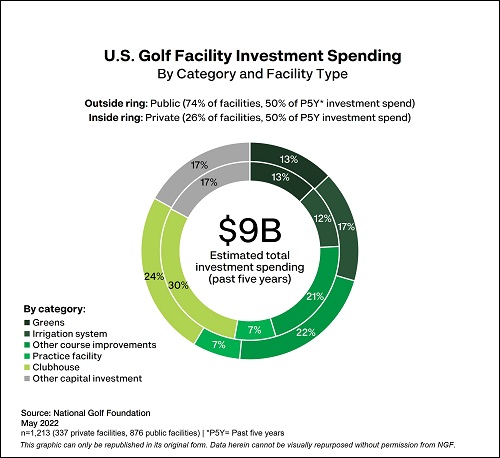JUPITER, Florida – Brand new course openings in the golf-rich U.S. market have been limited over the past decade – approximately 200 in total. Course closures have outpaced openings during that time, with total supply dropping by about 10%.
For years this market correction has been used as a proxy for golf’s overall health – courses are closing, golf must be in trouble. It’s a narrative that’s missed the bigger picture. If golf were another industry, analysts might describe the past decade as “portfolio repositioning” or “readying for the future” instead of a business in peril.
The truth of the matter is that the U.S. golf market has perhaps never been in a better position, with an offering that’s greatly evolved to address the current and shifting needs of consumers. These days, in most markets, you can play golf during the day, at night, inside, outside, for $30, for $200, by yourself, with a big group of friends, at a bar, in your living room, in a gamified way or in its purist form. The game’s evolution has been noteworthy, with major investments in alternative experiences and venues.

But golf course supply is much different too, and not just in terms of volume. From major renovations and rebuilds to minor re-work and rehabilitations, more than $9 billion is estimated to have been invested over just the past five years into “new-to-you” improvements at golf courses nationwide.
That doesn’t sound like a struggling industry.
In a 2020 NGF study, almost 80% of public facilities and 85% of private clubs told us they’d undertaken some kind of course improvements or renovations over the past five years, ranging from reconstructed greens, fairways, teeing grounds and bunkers, to re-grassing and irrigation work, to clubhouse improvements, upgraded practice facilities, and other capital investments.
Of course, much of this investment has been required. Consider that more than 4,500 courses opened in the U.S. over the 20-year period from 1986 to 2005 – many of them are now squarely in the window for necessary improvements, like addressing critical infrastructure or replacing an irrigation system that might have a 20- to 30-year life span. And yet, there’s also been a significant number of voluntary upgrades.
Across the board, indications are that investment in golf is strong. Course openings indeed remain limited, but that’s just one indicator of health and “newness.” There’s a lot going on at the more than 14,000 golf facilities nationwide, and it’s far more than a fresh coat of paint.


